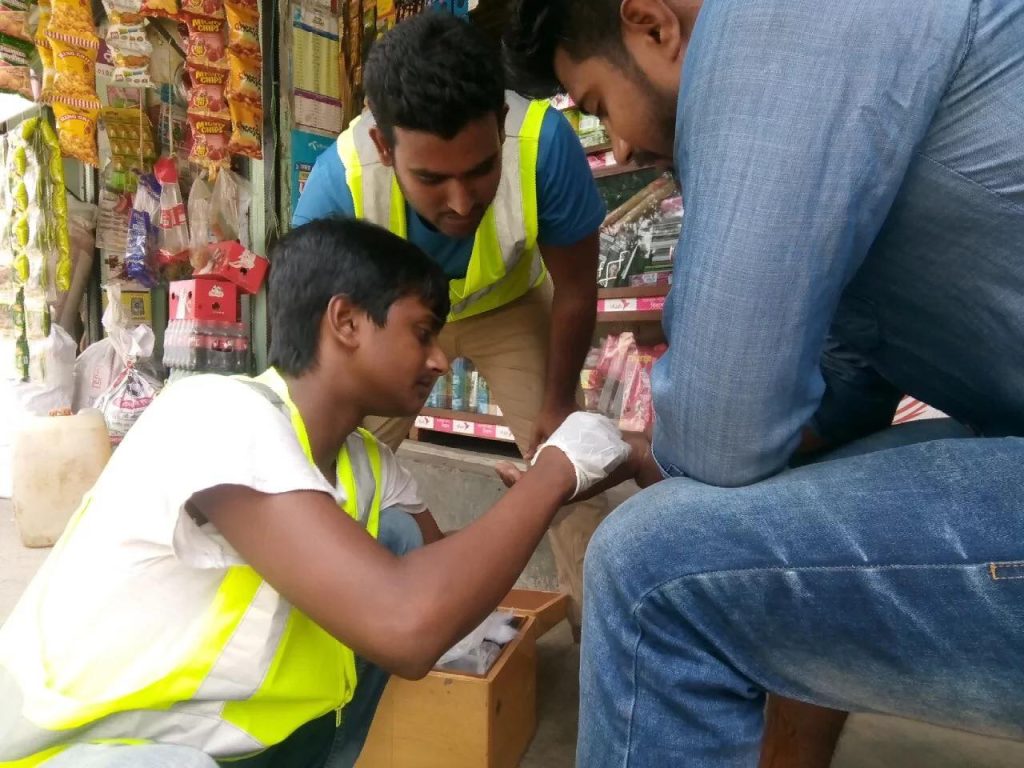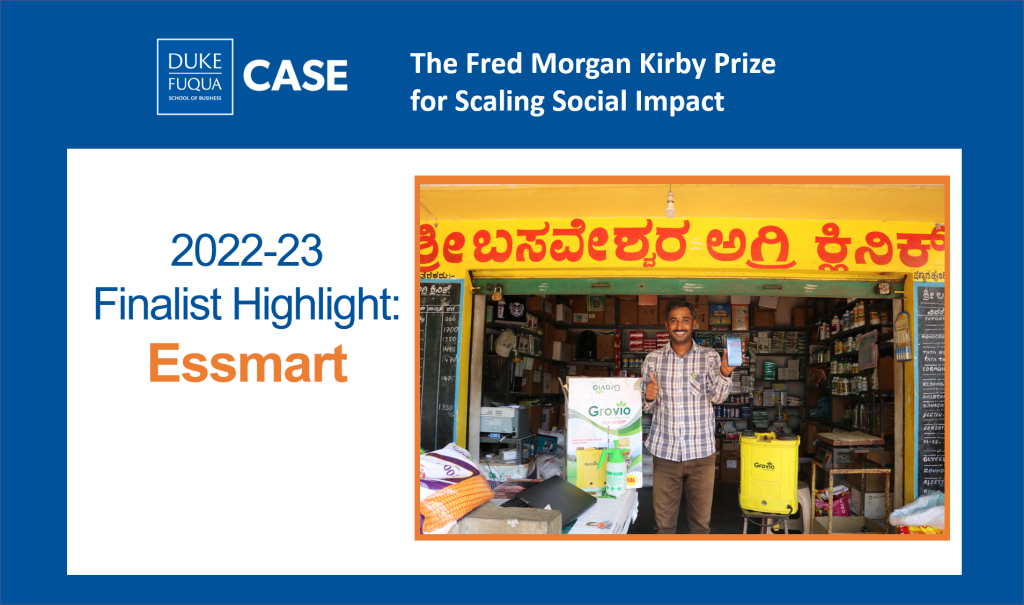
In 2019, CASE at Duke University’s Fuqua School of Business and the United States Agency of International Development’s (USAID) Global Development Lab Center for Applied Innovation and Acceleration selected eight social enterprises from USAID’s Development Innovation Ventures Portfolio to participate in the Growth Readiness Assessment and Coaching Project (GRA). Launched with the goal of identifying ways to support social enterprises as they work to achieve impact at scale, the GRA assessed organizations’ strengths, weaknesses and opportunities and then used coaching as a powerful tool to help address their biggest challenges.
“One of the biggest challenges that we have been facing is how to scale, both in terms of working in other locations and in diversifying our funding and working with larger multinational donors,” said Dr. Jon Moussally, GRA participant and founder of TraumaLink, a volunteer-based emergency response system that aims to reduce the number of deaths and injuries on highways in Bangladesh. “We felt that the coaching process provided us with individually-tailored help to fit our needs, giving us a clearer idea of how to move forward.”
As a first step, CASE asked leaders and stakeholders of TraumaLink and the seven other selected social enterprises to complete the CASE Scaling Readiness Diagnostic. An innovative new tool that CASE is piloting through the GRA and planning to release later this year, the diagnostic leads social enterprises through eight critical questions to assess their readiness for scaling their impact: 1) Does it work? 2) Is there demand? 3) Can it scale? 4) Is it financially viable? 5) Do you know the ecosystem? 6) Do you have the appropriate team? 7) Do you have the appropriate system? and 8) Will it work?
Results of the diagnostic then helped CASE pair the selected GRA social enterprises with a coach from We Scale Impact, a firm of award-winning global executives who have founded and scaled businesses facing unique challenges and opportunities all over the world.
“From our coach, we received a wealth of knowledge and were connected to a broader social enterprise network that expedited our learning and gave us insights and understanding that we would have otherwise had to learn through trial and error,” said Chris Bessenecker, Vice President of Strategic Initiatives at Project Concern International (PCI), which houses AfriScout, a social enterprise engaged in the GRA project. “We are incredibly appreciative of the Duke program and the opportunity we had to work with real experts and in building AfriScout as an enterprise.”
While CASE is still collecting feedback and evaluations from PCI and the other participating enterprises, it has determined that coaching can be a highly effective technical assistance tool for impact enterprises if it includes key components:
1. A thoughtful matching process
The CASE Scaling Readiness Diagnostic proved to be a critical tool to help identify enterprises’ areas of strength and weakness related to the scaling process. The diagnostic results allowed grantees to be matched with a coach whose professional experience and network were relevant for the challenges highlighted and also allowed coaches to quickly and deeply understand the challenges their grantee was facing. Other matching factors considered were time zone availability, sectoral expertise and compatibility.
2. Enough time for coaching
While the diagnostic provided a helpful on-ramp, the GRA coaching process lasted for nine months. This provided coaches and leaders with enough time and space to develop trust, test new ideas, evaluate results and address issues highlighted by the diagnostic, as well as more dynamic, just-in-time challenges, in ways that would not have been possible through training or consulting. While coaching can include elements of training and consulting, it is often also a more forward-looking, facilitated problem-solving process that helps others help themselves – instead of relying on the trainer or consultant – which takes time to nurture.
3. Focus on both technical and adaptive challenges
The GRA project also showed that coaching is uniquely suited to allow impact enterprises to tackle both technical and adaptive challenges. Technical challenges are often mechanical and able to be solved by seeking out an expert or specific resource. Conversely, adaptive challenges do not have a pre-determined response or agreed upon set of rules or procedures that lead to solutions. Instead, adaptive challenges require experimentation, uncovering new knowledge and regularly making adjustments.[1] For example, in the GRA coaching process, CASE found that leaders often surfaced three key adaptive challenges:
- Making the mindset shift from founding technical expert to enterprise CEO,
- Navigating organizational cultural shifts while balancing impact and revenue goals and
- Responding to unanticipated ecosystem changes over which enterprises have no control.
As CASE continues to evaluate and learn from these adaptive challenges and other findings during the GRA evaluation phase, it will work to incorporate these learnings into tools and resources that better serve social enterprises and innovators.
“One of the things that this project confirmed for me was that there is a crying need from innovators for assistance from experienced innovators, both in the for-profit and non-profit sectors,” said Alden Zecha, founding partner at We Scale Impact and Senior Fellow at CASE. “First-time innovators don’t know what they don’t know, and the diagnostic and coaching process are additional tools we can use as educators to further accelerate the sharing of relevant information that is tailored to help organizations grow in specific ways.”
To access additional CASE tools and resources on scaling, visit Scaling Pathways, which offers practical advice from experienced social enterprises about how to navigate technical and adaptive challenges like those highlighted in the GRA Project.
[1] Heifetz, Ronald A., Marty Linsky, and Alexander Grashow. The Practice of Adaptive Leadership: Tools and Tactics for Changing Your Organization and the World. Harvard Business Press, 2009.

